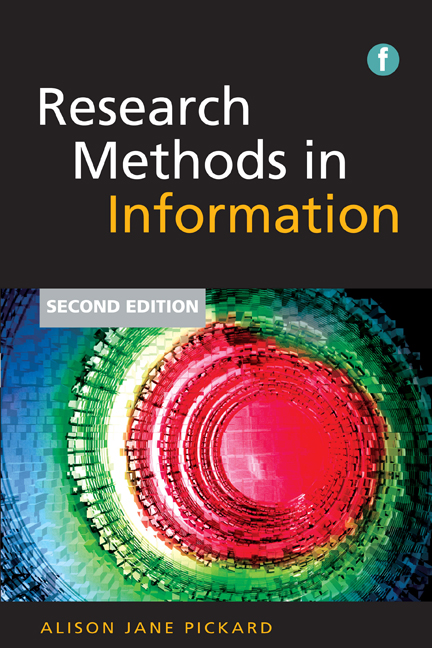Book contents
- Frontmatter
- Contents
- Preface to the second edition
- Acknowledgements
- Introduction
- Part 1 Starting the research process
- 1 Major research paradigms
- 2 Reviewing literature
- 3 Defining the research
- 4 The research proposal
- 5 Sampling
- 6 Research Data Management
- 7 Ethics in research
- Part 2 Research methods
- Part 3 Data collection techniques
- Part 4 Data analysis and research presentation
- Part 5 Glossary and references
- Index
6 - Research Data Management
from Part 1 - Starting the research process
Published online by Cambridge University Press: 08 June 2018
- Frontmatter
- Contents
- Preface to the second edition
- Acknowledgements
- Introduction
- Part 1 Starting the research process
- 1 Major research paradigms
- 2 Reviewing literature
- 3 Defining the research
- 4 The research proposal
- 5 Sampling
- 6 Research Data Management
- 7 Ethics in research
- Part 2 Research methods
- Part 3 Data collection techniques
- Part 4 Data analysis and research presentation
- Part 5 Glossary and references
- Index
Summary
Introduction – research data and its management Challenges
Research data management (RDM) comprises the activities that keep your data secure, accessible and usable. It is a fundamental part of good research practice. So what is the research data that needs to be managed? Unfortunately, a single definition of research data does not exist. One generic definition states that research data is ‘the evidence base on which … researchers build their analytic or other work’ (Fry et al., 2008). Another defines it as being ‘collected, observed, or created, for purposes of analysis to produce original research results’ (superior figures refer to the list of websites at the end of this chapter, on pages 85–6). More detailed definitions depend on the research discipline and the nature of the research being undertaken. The following definition of research shows the wide scope of this activity, and therefore the wide scope of research data:
… original investigation undertaken in order to gain knowledge and understanding. It includes work of direct relevance to the needs of commerce, industry, and to the public and voluntary sectors; scholarship; the invention and generation of ideas, images, performances, artefacts including design, where these lead to new or substantially improved insights; and the use of existing knowledge in experimental development to produce new or substantially improve materials, devises, products and processes, including design and construction.
(HEFCE, 2005)If we consider research data in this broad, inclusive context then it will mean different things to different researchers, and can effectively be many things. For example, a scientist will collect numerical data using instruments, a social scientist will obtain people's words from interviews, an artist will develop a work of art or a performance, using materials and observations to stimulate their creativity. Identifying what data will be created and used in the course of a research project is the first step in ensuring it is managed appropriately.
Table 6.1 provides examples of a wide range of data types and formats that are commonly created and/or used during a research project. It shows there is a lot of data to manage and protect and that it is not in one format or in one place.
- Type
- Chapter
- Information
- Research Methods in Information , pp. 71 - 86Publisher: FacetPrint publication year: 2013



